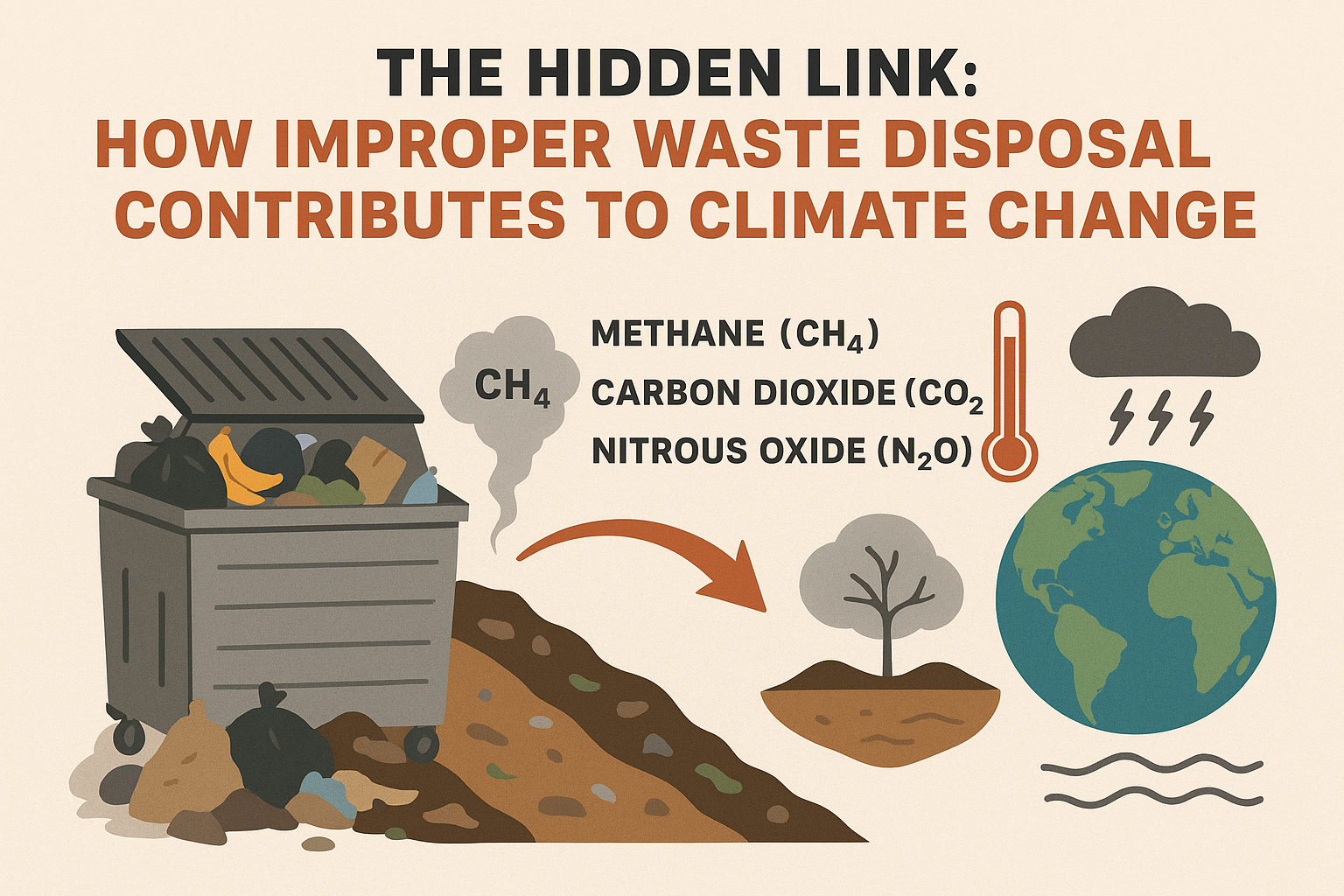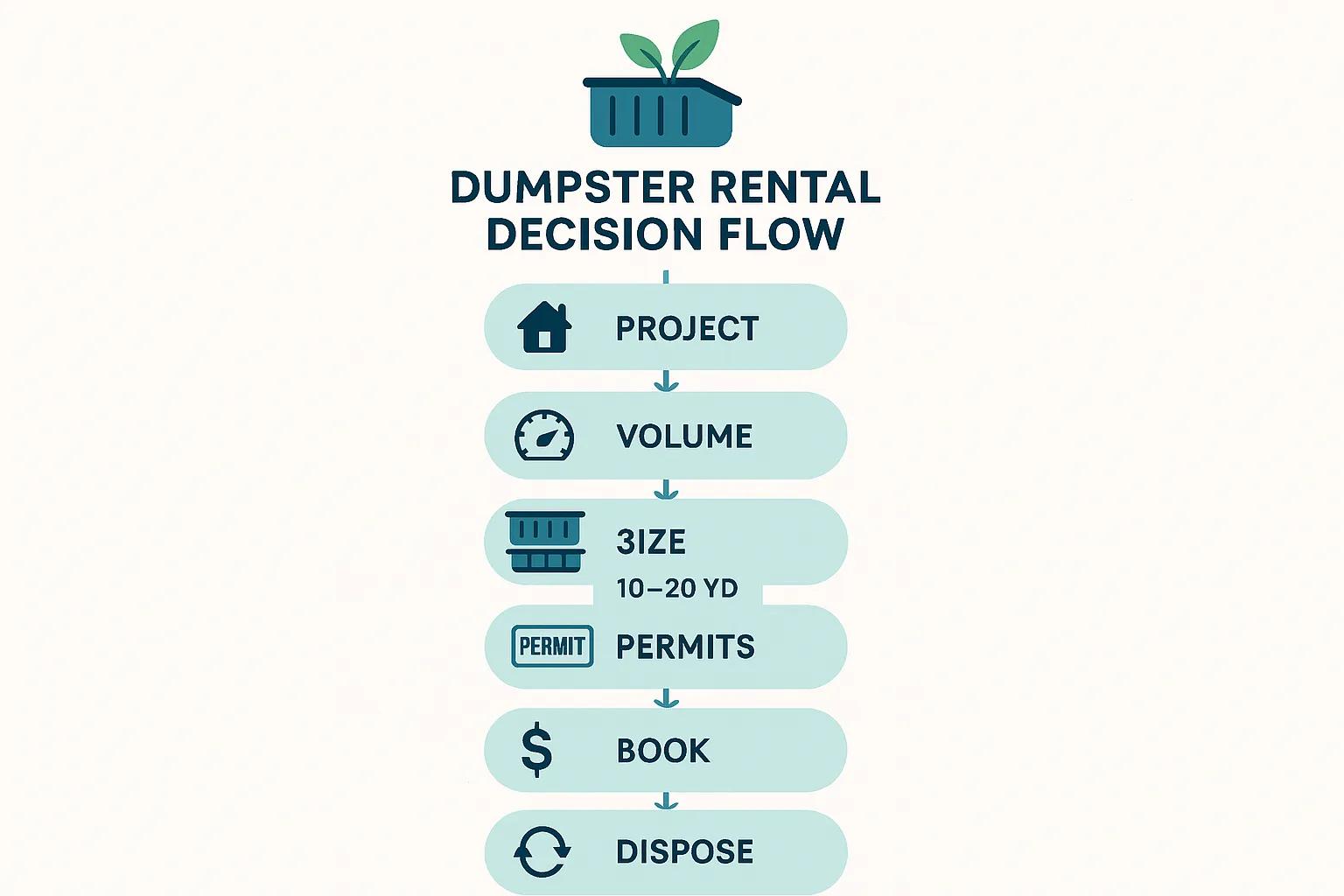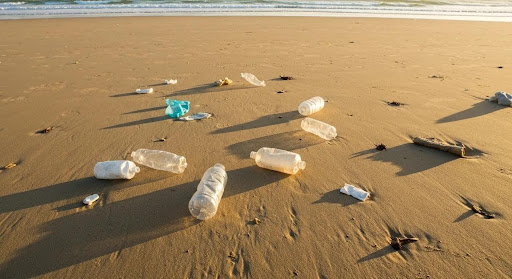
I. Introduction
Climate change has become one of the most pressing challenges of our time. Scientists, policymakers, and activists frequently discuss causes such as fossil fuels, deforestation, and industrial pollution. Yet, one factor often flies under the radar: improper waste disposal.
Every year, millions of tons of waste are dumped into landfills, incinerated without proper controls, or left to decompose in unmanaged environments. What many don’t realize is that this everyday mismanagement is quietly fueling climate change.
Thesis statement: Improper waste disposal is a significant contributor to climate change, and understanding this link is crucial for reducing emissions, protecting ecosystems, and building a sustainable future.
II. The Role of Waste in Climate Change
When waste breaks down, it releases greenhouse gases (GHGs), which trap heat in the Earth’s atmosphere. Three gases stand out in particular:
-
Methane (CH₄): Produced by decomposing organic waste in landfills, methane is 84 times more potent than CO₂ over a 20-year period.
-
Carbon dioxide (CO₂): Released during incineration and through the breakdown of materials like plastics.
-
Nitrous oxide (N₂O): Less discussed but highly significant, N₂O comes from waste treatment and is 300 times more effective than CO₂ at warming the planet.
Together, these emissions significantly amplify global warming, creating ripple effects across natural and human systems.
III. Sources of GHG Emissions from Waste
Waste isn’t just about overflowing trash bins—it’s a system of mismanagement that contributes to climate change in multiple ways.
-
Landfills: The largest source of methane emissions worldwide. In fact, the U.S. Environmental Protection Agency (EPA) notes that landfills are the third-largest source of methane in the U.S.
-
Incineration: Burning waste may reduce landfill size, but it releases CO₂ and toxic pollutants if not properly managed.
-
Decomposition of Organic Waste: Food scraps, yard clippings, and other organic matter rot in landfills without oxygen, producing massive amounts of methane.
Globally, the waste sector contributes about 3–5% of total greenhouse gas emissions, according to the Intergovernmental Panel on Climate Change (IPCC)—and this number could rise if no action is taken.
IV. Consequences of Climate Change
The connection between waste and climate change becomes more concerning when we consider its far-reaching consequences:
-
Rising Global Temperatures: Each year since 2015 ranks among the hottest on record.
-
Extreme Weather Events: Hurricanes, droughts, and floods are intensifying, threatening food and water security.
-
Sea-Level Rise: Melting ice caps put coastal communities at risk of displacement.
-
Ecosystem & Biodiversity Loss: Animals lose habitats, coral reefs bleach, and food chains collapse.
These outcomes highlight why addressing waste-related emissions is more than an environmental issue—it’s a humanitarian and economic imperative.
V. Solutions and Strategies
While the problem is significant, solutions are well within our reach. Communities, businesses, and individuals all play a role in reshaping waste management.
-
Recycling Programs: By recycling paper, metals, plastics, and glass, we can drastically cut down emissions and reduce demand for raw materials.
-
Composting Organic Waste: Turning food scraps and yard clippings into compost prevents methane production and enriches soil health.
-
Reducing Waste Generation: Adopting reusable products, reducing packaging, and embracing circular economy models minimize unnecessary waste.
-
Improved Waste Infrastructure: Investment in modern waste treatment, methane capture from landfills, and waste-to-energy technologies can significantly cut emissions.
Case Study: San Francisco’s Zero Waste Program has successfully diverted 80% of its waste from landfills through strict recycling and composting mandates. This proves that with the right policies, large-scale change is possible.
VI. Conclusion
Improper waste disposal is far from a minor environmental issue—it’s a hidden driver of climate change. From methane-filled landfills to toxic incinerators, our trash has a much larger impact than many realize.
The good news? Solutions already exist. By embracing sustainable waste management, supporting policies that reduce emissions, and making conscious choices in our daily lives, we can break the link between waste and climate change.
🌍 Call to Action: Reduce your waste, support recycling programs, and advocate for climate-friendly waste management. Every small change adds up to a global difference.



